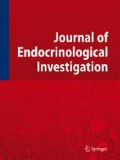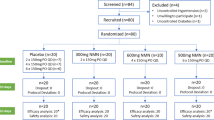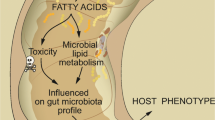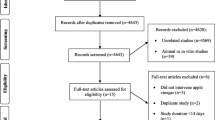Abstract
Objective: This study was undertaken to evaluate the antioxidant effects of lycopene in physiological doses and its possible effects on the immune response in patients with Type 2 diabetes mellitus (T2DM). Research design and methods: A total of 35 patients with T2DM of both sexes aged 54±9yrwere enrolled in a double-blind placebo-controlled clinical trial conducted for 2 months. After a 2-week lycopene-free diet washout period, patients were allocated to either lycopene supplementation group (10 mg/day) (no.=16) or placebo group (no.=19), which were age- and sex-matched. Patients were instructed to keep their diet and physical activity as unchanged as possible. Results: While dietary intake of energy and body weight did not change, the ratio of serum total antioxidant capacity (TAC) to malondialdehyde (MDA) increased significantly in the lycopene group compared to the placebo group (p=0.007). Though a statistically significant increase in serum concentrations of lycopene (p<0.001) was not accompanied by enhanced delayed-type hypersensitivity response, a significant negative correlation was found between serum levels of lycopene and immunoglobulin (Ig)G (r=−0.338, p=0.008). Interestingly, variations of serum levels of lycopene directly correlated with those of IgM (r=0.466, p=0.005). There was an insignificant decrement in serum anti-oxidized LDL IgG levels in the lycopene group. Conclusions: Lycopene, probably by increasing TAC and inhibiting MDA-LDL formation, may attenuate T cell-dependent adaptive (pro-atherogenic) immune response. Meanwhile, with enhancement of innate immunity and hence prevention of ox-LDL uptake by macrophage and foam cell formation, lycopene may be effective in prevention of long-term diabetic complications, notably cardiovascular disease.
Similar content being viewed by others
References
Huxley R, Barzi F, Woodward M. Excess risk of fatal coronary heart disease associated with diabetes in men and women: meta-analysis of 37 prospective cohort studies. BMJ 2006, 332: 73–8.
Stephens JW, Gable DR, Hurel SJ, Miller GJ, Cooper JA, Humphries SE. Increased plasma markers of oxidative stress are associated with coronary heart disease in males with diabetes mellitus and with 10-year risk in a prospective sample of males. Clin Chem 2006, 52: 446–52.
Xia Z, Nagareddy PR, Guo Z, Zhang W, McNeill JH. Antioxidant N-acetylcysteine restores systemic nitric oxide availability and corrects depressions in arterial blood pressure and heart rate in diabetic rats. Free Radic Res 2006, 40: 175–84.
Song MK, Rosenthal MJ, Song AM, Yang H, Ao Y, Yamaguchi DT. Raw vegetable food containing high cyclo (his-pro) improved insulin sensitivity and body weight control. Metabolism 2005, 54: 1480–9.
Anderson RA, Evans LM, Ellis GR, et al. Prolonged deterioration of endothelial dysfunction in response to postprandial lipaemia is attenuated by vitamin C in Type 2 diabetes. Diabet Med 2006, 23: 258–64.
Clarke MW, Ward NC, Wu JH, Hodgson JM, Puddey IB, Croft KD. Supplementation with mixed tocopherols increases serum and blood cell gamma-tocopherol but does not alter biomarkers of platelet activation in subjects with type 2 diabetes. Am J Clin Nutr 2006, 83: 95–102.
Neri S, Signorelli SS, Torrisi B, et al. Effects of antioxidant supplementation on postprandial oxidative stress and endothelial dysfunction: a single-blind, 15-day clinical trial in patients with untreated type 2 diabetes, subjects with impaired glucose tolerance, and healthy controls. Clin Ther 2005, 27: 1764–73.
Chen H, Karne RJ, Hall G, et al. High-dose oral vitamin C partially replenishes vitamin C levels in patients with Type 2 diabetes and low vitamin C levels but does not improve endothelial dysfunction or insulin resistance. Am J Physiol Heart Circ Physiol 2006, 290: H137–45.
Crimi E, Sica V, Williams-Ignarro S, et al. The role of oxidative stress in adult critical care. Free Radic Biol Med 2006, 40: 398–406.
Khachik F, Carvalho L, Bernstein PS, Muir G, Zhao DY, Katz NB. Chemistry, distribution, and metabolism of tomato carotenoids and their impact on human health. Exp Biol Med (Maywood) 2002, 227: 845–51.
Karahan I, Atessahin A, Yilmaz S, Ceribasi AO, Sakin F. Protective effect of lycopene on gentamicin-induced oxidative stress and nephrotoxicity in rats. Toxicology 2005, 215: 198–204.
Atessahin A, Yilmaz S, Karahan I, Ceribasi AO, Karaoglu A. Effects of lycopene against cisplatin-induced nephrotoxicity and oxidative stress in rats. Toxicology 2005, 212: 116–23.
Neuman I, Nahum H, Ben-Amotz A. Reduction of exercise-induced asthma oxidative stress by lycopene, a natural anti-oxidant. Allergy 2000, 55: 1184–9.
Porrini M, Riso P, Brusamolino A, Berti C, Guarnieri S, Visioli F. Daily intake of a formulated tomato drink affects carotenoid plasma and lymphocyte concentrations and improves cellular antioxidant protection. Br J Nutr 2005, 93: 93–9.
Shi J, Kakuda Y, Yeung D. Antioxidative properties of lycopene and other carotenoids from tomatoes: synergistic effects. Biofactors 2004, 21: 203–10.
Kim GY, Kim JH, Ahn SC, et al. Lycopene suppresses the lipopolysaccharide-induced phenotypic and functional maturation of murine dendritic cells through inhibition of mitogen-activated protein kinases and nuclear factor-kappaB. Immunology 2004, 113: 203–11.
Briviba K, Kulling SE, Moseneder J, Watzl B, Rechkemmer G, Bub A. Effects of supplementing a low-carotenoid diet with a tomato extract for 2 weeks on endogenous levels of DNA single strand breaks and immune functions in healthy non-smokers and smokers. Carcinogenesis 2004, 25: 2373–8.
Watzl B, Bub A, Briviba K, Rechkemmer G. Supplementation of a low-carotenoid diet with tomato or carrot juice modulates immune functions in healthy men. Ann Nutr Metab 2003, 47: 255–61.
Watzl B, Bub A, Brandstetter BR, Rechkemmer G. Modulation of human T-lymphocyte functions by the consumption of carotenoid-rich vegetables. Br J Nutr 1999, 82: 383–9.
Upritchard JE, Sutherland WH, Mann JI. Effect of supplementation with tomato juice, vitamin E, and vitamin C on LDL oxidation and products of inflammatory activity in type 2 diabetes. Diabetes Care 2000, 23: 733–8.
Satoh K. Serum lipid peroxide in cerebrovascular disorders determined by a new colorimetric method. Clin Chim Acta 1978, 90: 37–43.
Rice-Evans, Miller NJ. Total antioxidant status in plasma and body fluids. Methods Enzymol 1994, 234: 279–93.
Corridan BM, O’Donoghue M, Hughes DA, Morrissey PA. Low-dose supplementation with lycopene or beta-carotene does not enhance cell-mediated immunity in healthy free-living elderly humans. Eur J Clin Nutr 2001, 55: 627–35.
Pellegrini N, Riso P, Porrini M. Tomato consumption does not affect the total antioxidant capacity of plasma. Nutrition 2000, 16: 268–71.
Cunningham-Rundles S. Analytical methods for evaluation of immune response in nutrient intervention. Nutr Rev 1998, 56: S27–37.
Ceriello A. Oxidative stress and diabetes-associated complications. Endocr Pract 2006, 12(Suppl 1): 60–2.
Ganji V, Kafai MR; Third National Health and Nutrition Examination Survey, 1998–1994. Population determinants of serum lycopene concentrations in the United States: data from the Third National Health and Nutrition Examination Survey, 1988–1994. J Nutr 2005, 135: 567–72.
Agarwal S, Rao AV. Tomato lycopene and low density lipoprotein oxidation: a human dietary intervention study. Lipids 1998, 33: 981–4.
Hininger IA, Meyer-Wenger A, Moser U, et al. No significant effects of lutein, lycopene or β-carotene supplementation on biological markers of oxidative stress and LDL oxidizability in healthy adult subjects. J Am Coll Nutr 2001, 20: 232–8.
Meydani SN, Wu D, Santos MS, Hayek MG. Antioxidants and immune response in aged persons: overview of present evidence. Am J Clin Nutr 1995, 62(Suppl): 1462S–76S.
Shaw PX. Rethinking oxidized low-density lipoprotein, its role in atherogenesis and the immune responses associated with it. Arch Immunol Ther Exp (Warsz) 2004, 52: 225–39.
Hörkkö S, Miller E, Dudl E, et al. Antiphospholipid antibodies are directed against epitopes of oxidized phospholipids. Recognition of cardiolipin by monoclonal antibodies to epitopes of oxidized low density lipoprotein. J Clin Invest 1996, 98: 815–25.
Arab L, Steck S. Lycopene and cardiovascular disease. Am J Clin Nutr 2000, 71(Suppl): 1691S–5S.
Neyestani TR, Alipour-Birgani R, Siassi F, Rajayi M, Djalali M, Mohamadi M. Glycemic optimization may reduce lipid peroxidation independent of weight and blood lipid changes in Type 2 diabetes mellitus. Diab Nutr Metab 2004, 17: 275–9.
Shanmugam N, Reddy MA, Guha M, Natarajan R. High glucose-induced expression of proinflammatory cytokine and chemokine genes in monocytic cells. Diabetes 2003, 52: 1256–64.
Author information
Authors and Affiliations
Corresponding author
Rights and permissions
About this article
Cite this article
Neyestani, T.R., Shariatzadeh, N., Gharavi, A. et al. Physiological dose of lycopene suppressed oxidative stress and enhanced serum levels of immunoglobulin M in patients with Type 2 diabetes mellitus: A possible role in the prevention of long-term complications. J Endocrinol Invest 30, 833–838 (2007). https://doi.org/10.1007/BF03349224
Accepted:
Published:
Issue Date:
DOI: https://doi.org/10.1007/BF03349224




